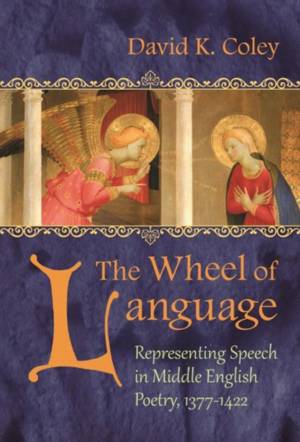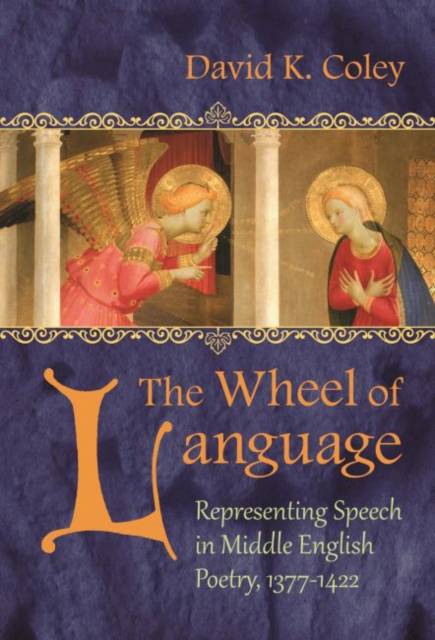
- Afhalen na 1 uur in een winkel met voorraad
- Gratis thuislevering in België vanaf € 30
- Ruim aanbod met 7 miljoen producten
- Afhalen na 1 uur in een winkel met voorraad
- Gratis thuislevering in België vanaf € 30
- Ruim aanbod met 7 miljoen producten
Zoeken
€ 45,95
+ 91 punten
Omschrijving
In The Wheel of Language, Coley explores representations of speech in English poetry of the later Middle Ages, proposing that the spoken word, both within Ricardian and Lancastrian poetry and within latemedieval English culture, was understood as an efficacious, powerful medium. Representing speech in the poetic text was always a political act, one by which authors were able to criticize and comment upon issues as diverse as the Lancastrian usurpation; the Lollard heresy; and the philosophical, economic, and institutional changes that England witnessed in the fourteenth and fifteenth centuries. Coley examines the work of Chaucer, Gower, Hoccleve, and the anonymous author of St. Erkenwald to show how writers manipulated cultural understandings of speech to engage with the crises that defined the later Middle Ages. Ultimately, The Wheel of Language uses the spoken word within the written text to map the complicated and shifting relationships among language, literature, politics, and power.
Specificaties
Betrokkenen
- Auteur(s):
- Uitgeverij:
Inhoud
- Aantal bladzijden:
- 272
- Taal:
- Engels
- Reeks:
Eigenschappen
- Productcode (EAN):
- 9780815632733
- Verschijningsdatum:
- 16/05/2012
- Uitvoering:
- Hardcover
- Formaat:
- Ongenaaid / garenloos gebonden
- Afmetingen:
- 160 mm x 239 mm
- Gewicht:
- 521 g

Alleen bij Standaard Boekhandel
+ 91 punten op je klantenkaart van Standaard Boekhandel
Beoordelingen
We publiceren alleen reviews die voldoen aan de voorwaarden voor reviews. Bekijk onze voorwaarden voor reviews.











